By Farhana Shanaz
Unlike her other friends, Sufia loved going to school. While her friends were busy frolicking around, Sufia would sit in a candle-lit corner of her house, her little finger tracing every line of the book, her face brimming with pride and joy. She secretly aspired to be a school teacher. But as luck would have it, Sufia had to drop out of school within months and her dream of attaining education came to a screeching halt.
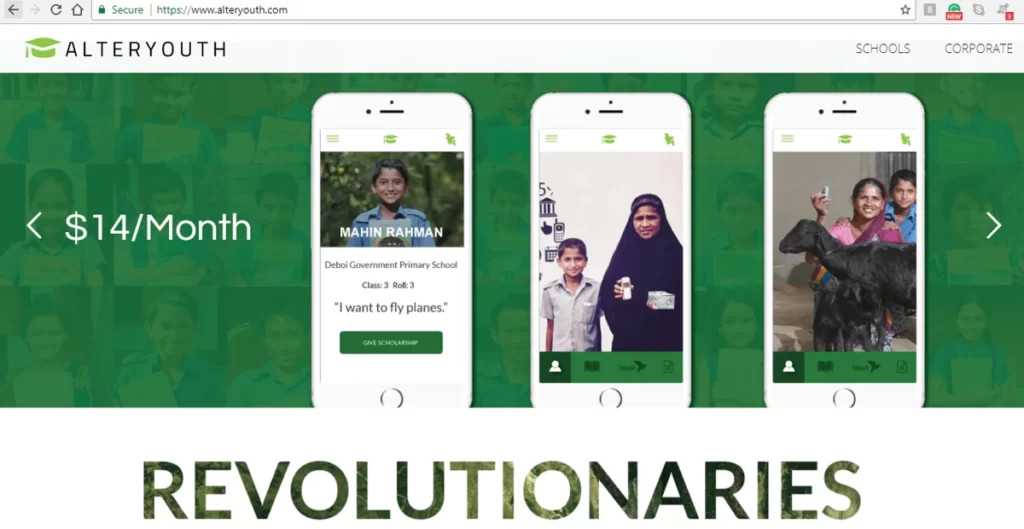
There are many such Sufias in Bangladesh who had to give up their education, having succumbed to poverty. The literacy rate of Bangladesh is 61.5%. What might shock everyone is that ironically it has a stellar enrollment rate of 97% in the first grade. However, the problem arises when 25% of these children drop out by the time they reach the fifth grade. As per its primary education curriculum, a person learns to read, write and do basic math once completing grade five. As such, 1 in every 4 children will not know how to read and write. Bangladeshi children are known to dropout to support their families financially, taking up odd jobs or helping with household or agricultural chores. The Government provides 100% free education and free books but this incentive was not enough to stir the rural population. If only we can prevent dropouts till grade 5, 97% of Bangladesh would be literate, eventually paving the way for 100% literacy.
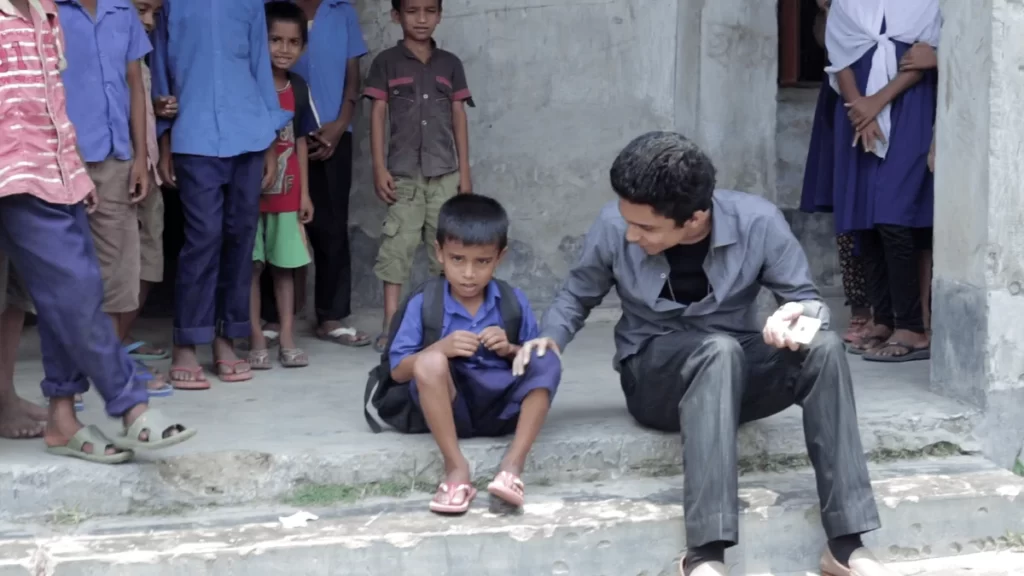
Elaborate efforts have gone into driving changes towards ensuring a greater literacy rate. One such initiative that has been working relentlessly to alter the scenario and empower the youth through education is AlterYouth. AlterYouth started its journey in 2014 after innovating its ‘Literacy Scholarship’ model. It was the realization of CEO Asifun Nabi’s dream to create a platform that can help eradicate illiteracy and effectively, poverty—a dream that he first conceived during a trip to New York in 2014.
During his visit to New York, he saw stark contrast between the standard of living of Bangladesh, his homeland, and America and he wondered why that was so. He wondered why his country wasn’t like America and if it could ever even be like America. It gave him some food for thought and after considerable research, some insights came to light. He reckoned that the true determinant of a country’s stature was its people. Regardless of its abundance of resources, if the people of a country were under poverty, the country would effectively be deemed poor.
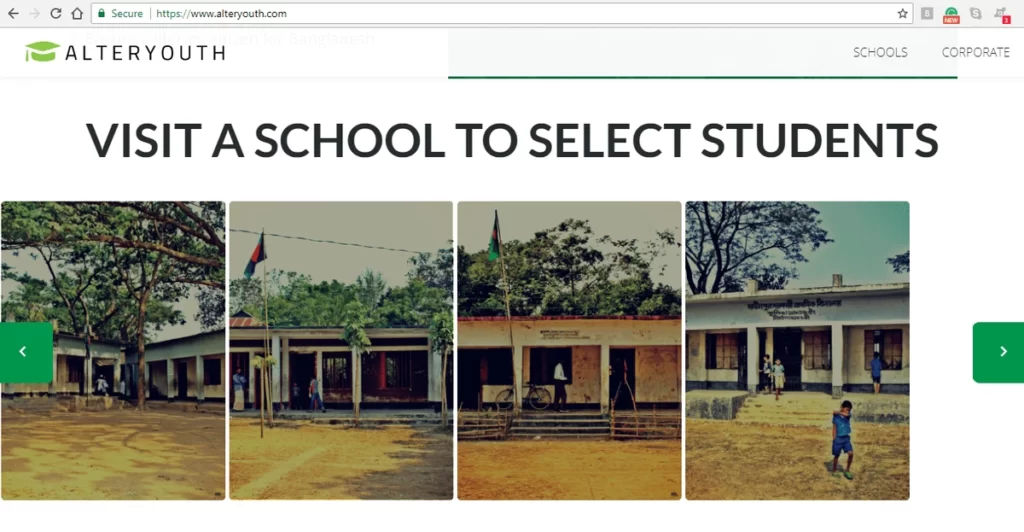
The first step towards turning the wheel of fortune for a country was to bring its population out of poverty, one person at a time. Nabi then sought to find the determining factor of poverty and through his research he found the key driver to be illiteracy. He discovered that there were hardly any cases of a literate individual being affected by poverty so there must have been a strong correlation between the two.
Nabi was quick to realize that the channel to eradicate poverty was empowering the population through education. This called for effective measures towards reduction of dropouts. The model for AlterYouth was thus derived as a solution for preventing dropouts in the country. The underlying reason for dropouts was the children who dropped out could be engaged into vocational opportunities to earn an income for their families. The parents being illiterate themselves, failed to recognize the long-term benefits of education and the incentives of free amenities was not enough to deter them.
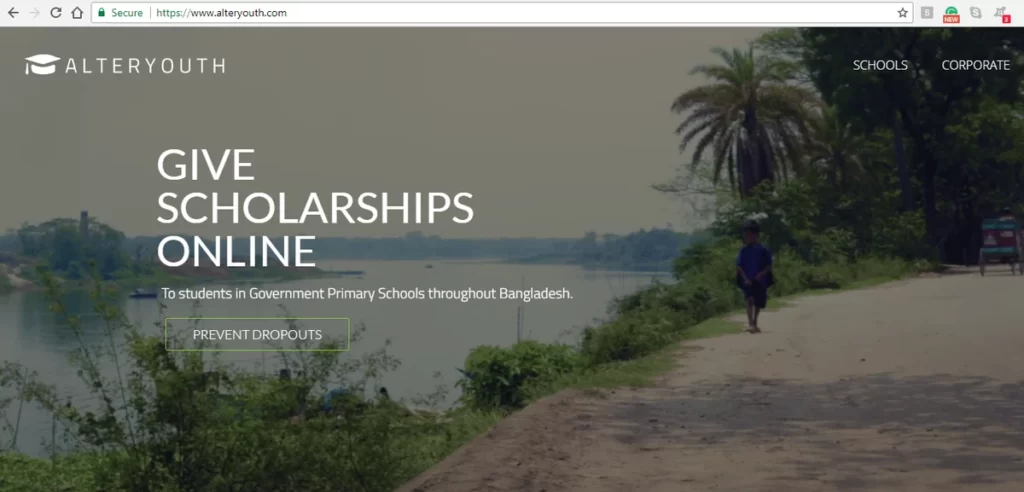
The only incentive that seemed to be able to strike a chord was providing monetary incentive greater than or equal to what the dropouts earned. The whole model for AlterYouth was based on this insight. After speaking to locals from his own village, Nabi found that the average dropout earned Tk800 ($10). It seemed rather dismal that so many youth were deprived of basic education because of what was a meager sum of money to many of us. He realized to make a greater impact, people like him had to come forward. And what better way to create awareness for this cause than leveraging on the prowess of the internet.
A beta website was soon launched and the hypothesis that providing monetary incentive greater than the income the dropouts would potentially make can turn the scenario around was tested out in twenty different Government Primary Schools. After a successful run for 2 years, the official website was launched.
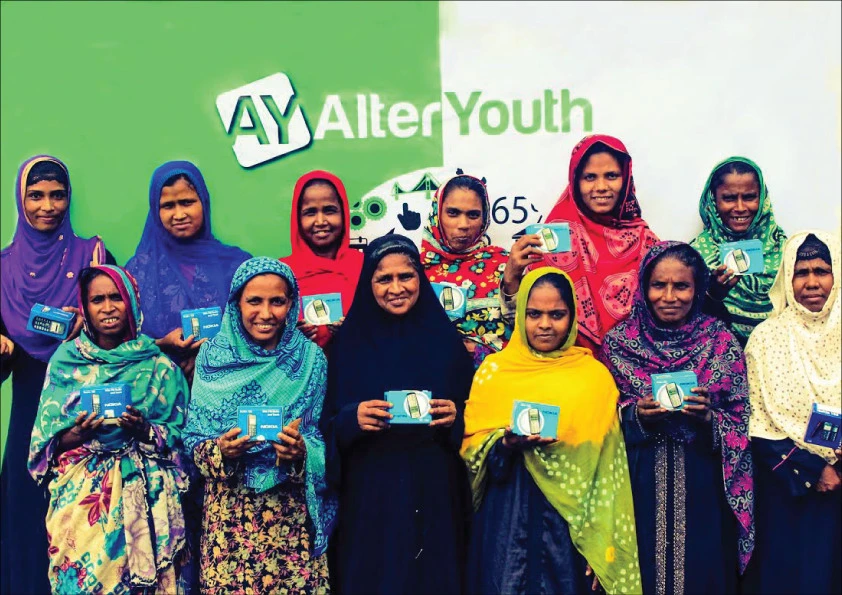
The website would host profiles of rural schools along with a database of its most vulnerable and poverty-stricken students. The students were nominated based on objective criteria provided by AlterYouth, such as having a single mother, landless families and having a disabled parent. A potential donor would be able to log into the website and select a student to give a Literacy Scholarship.
The scholarships were valued at Tk800/month contingent upon 65% attendance and marks in class, continuing until completion of grade five, after which the recipient has achieved literacy. AlterYouth added a scholarship management fee of Tk200, amounting to $ 12.5/month, although users from outside Bangladesh have to pay $ 14/month for international payment charges. The mother of the scholarship recipient is provided a mobile phone and a bank account. The donor profile is connected with the student’s profile, the parent’s profile and the respective school’s profile having direct access to each. Every month the scholarships are transferred from user’s bank to the mother’s bank. The user receives the bank statements every month as well as the report card of the scholarship recipient in their profile inbox every quarter to be in the loop. This continues until the student completes grade five, getting a primary school certificate. The donor has now successfully prevented a child from dropping out and ensured a literate citizen for Bangladesh, paving the way towards its 100% literacy target. This also ensures a step towards reducing poverty because achieving literacy will open doors to new possibilities for these children.
As of now, AlterYouth has ensured scholarships for 212 students and plans to make this number grow exponentially. AlterYouth has targeted 900,000 scholarships per month and is working tirelessly towards that goal. The perseverance of the AlterYouth team has led it to become one of the four startups to receive recognition from Grameenphone Accelerators, an accelerator program designed to support early-stage, home-grown tech startups. The journey so far for AlterYouth only goes to show that all it takes is grit and genuine passion to make your dreams into a reality. Asifun Nabi didn’t just make his own dream of someday seeing Bangladesh parallel to countries such as America a reality. He also made dreams of many unfortunate children of achieving literacy such as Sufia, a reality.
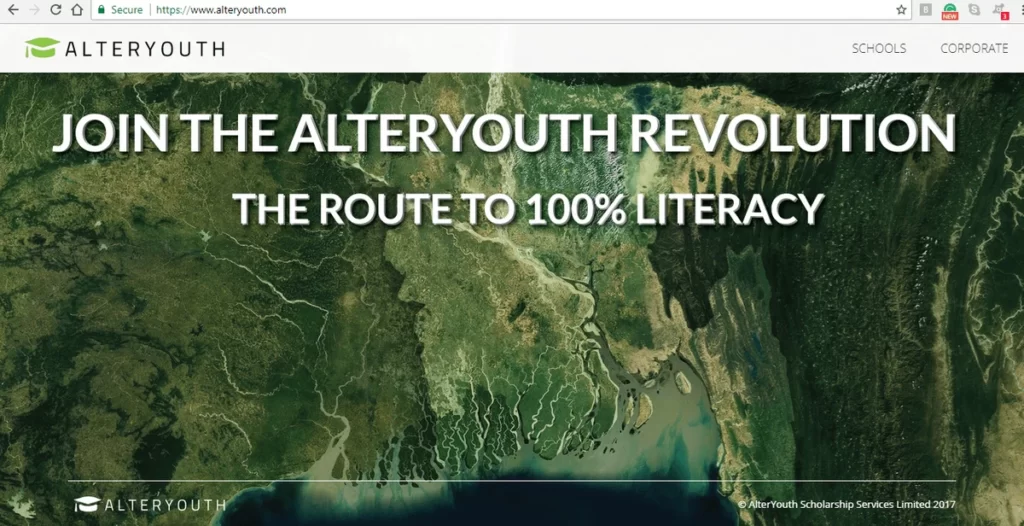
To be a part of the change, visit AlterYouth at https://www.alteryouth.com/

